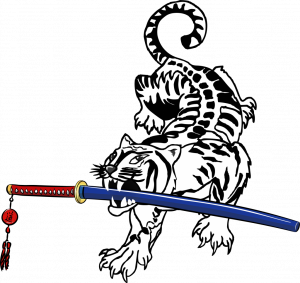 The more articles that I read about leadership, the more I keep hearing them repeat the core principles of the martial arts and a few deeper concepts. Even the big notables like Deepak Chopra speak about these principles and probably don’t realize it. They use different words to describe the characteristics and suggest that (academic) study is needed.
The more articles that I read about leadership, the more I keep hearing them repeat the core principles of the martial arts and a few deeper concepts. Even the big notables like Deepak Chopra speak about these principles and probably don’t realize it. They use different words to describe the characteristics and suggest that (academic) study is needed.
http://www.linkedin.com/today/post/article/20130828015352-75054000-how-to-become-a-great-leader?trk=tod-posts-art-
Using his article…
1) Safety, security
Well, duh, that’s a core reason to study a martial art. The way to feel safer is to study how to respond. Frank Guldbrandsen-sensei, Northern Lights Aikido, once said during an Aikido class that he felt people learned in three stages (physical, emotional and spiritual). The first step learn responses to physical situations, then take these responses and apply them to intellectual/emotional situations, and finish with a deeper understanding and working knowledge of interpersonal dynamics.
2) Achievement, success
The simple aspect of rank promotion provides positive re-enforcement for setting and attaining goals. A martial arts curriculum also provides a groundwork for understanding the connection between how techniques work together, how applied techniques illustrate the principles and how the principles apply to daily life.
3) Cooperation
Partnered training (i.e. one-steps or sparring drills) provides dynamic feedback regarding proper technique and application. It also provides an opportunity to see and feel the way another person’s technique.
4) Nurturing, belonging
The first thought of “family” in the martial arts usually is seen as lineage. It is a way to keep our traditions and methods alive. Different martial arts vary in how close knit the group is. As I’ve trained, I have become more aware that the “family” is about helping each other to develop and grow. This includes the physical training but extends into daily life. We regularly have students networking to help each other outside of class. Whether its actually gaining customers/clients or getting references/referrals, we’re all one family.
5) Creativity, progress
The growth of the student is illustrated in the variety of ways they apply techniques. Several students had enlightening moments when they recognized the same technique combination in several forms. The light bulb turned on and lead to finding better ways to perform the techniques.
6) Moral values
What can I say? The humility of a true martial artist demonstrates what role models should be. Martial artists work to be a benefit to their family, neighborhood and community.
7) Spiritual fulfillment
Training through the three steps of learning leads to greater well-being and happiness that benefits the community.
Why do you train?
Author: Master Robert Frankovich
As you read and enjoy the posts on this site, please consider “sharing” them! The “likes” help generate additional readership but “sharing” will help even more! Thank you for your assistance!
If you have questions, please feel free to contact me!


